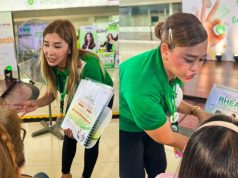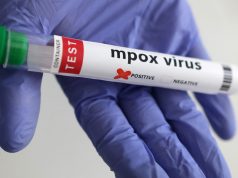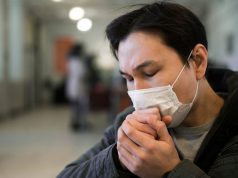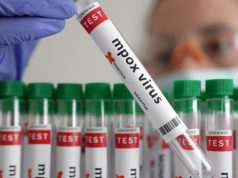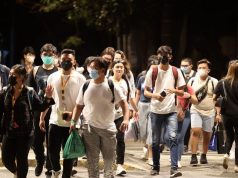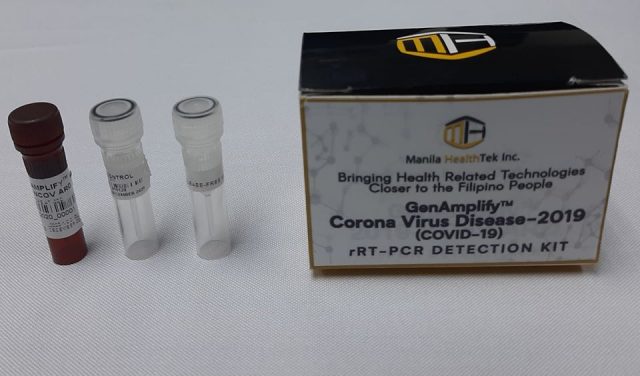
More accredited testing centers and field validation of the testing kits developed by the University of the Philippines are expected to be implemented and distributed soon to help fight the novel coronavirus in the country.
The testing kit called the SARS-CoV-2 PCR Detection Kit was developed by UP scientist Dr. Raul Destura and his team from UP’s National Institute of Health and it was funded by the Department of Science and Technology.
DOST Secretary Fortunato dela Peña on Monday announced on Facebook that this local detection tool is still undergoing field validation which is expected to be finished by today, April 1.
STATUS UPDATE ON LOCALLY-DEVELOPED COVID-19 TEST KITS Monday, 30 March 2020The field validation for the COVID-19…
Posted by Fortunato de la Peña on Sunday, March 29, 2020
Meanwhile, requirements for the Certificate of Product Registration from the Food and Drug Administration will be submitted on the same day as well. The FDA will then issue the certificate on April 3.
FDA previously issued a certificate of exemption last March 10, a month after the UP-NIH developed the device.
Around 1,000 to 2,000 tests were supposed to be conducted following the FDA approval.
An official from the FDA, however, clarified that these kits have to undergo field testing first.
The Research Institute for Tropical Medicine normally screens samples from suspected cases first and then the Department of Health sends these to overseas laboratories to confirm if a patient is positive for the SARS-CoV-2.
The local testing kit also costs only P1,320 per test, the DOST disclosed, a lot cheaper compared to the hefty P8,500 price tag of foreign kits being used by the health department.
In relation to this, more testing laboratories in several parts of the country would be accredited by the DOH so that it can conduct a full scale testing process of suspected COVID-19 cases.
“One of DOH’s strategies to combat the threat of COVID-19 is to enhance and expand our country’s testing capabilities,” the healthy agency said on its post.
One of DOH's strategies to combat the threat of COVID-19 is to enhance and expand our country's testing capabilities. Here's a list of the future laboratories that RITM is capacitating!#BeatCovid19#WeHealAsOne#COVID19PH pic.twitter.com/6kUAvjAOaF
— Department of Health (@DOHgovph) March 30, 2020
The DOH released a list of hospitals RITM is capacitating for screening samples with the status of accreditation as of March 30. There are a total of five accreditation steps—self-assessment, validation, personal training, proficiency testing and full scale implementation.
So far, only six testing laboratories have achieved stage 5. These are the RITM, the Philippine General Hospital, the San Lazaro Hospital, the Vicente Sotto Memorial Medical Center, the Southern Philippines Medical Center, the Baguio General Hospital and the UP-NIH.
Once the local testing kits have been manufactured, DOST will distribute a batch of them to PGH, Vicente Sotto Memorial Medical Center, Southern Philippines Medical Center, and Baguio General Hospital, Makati Medical Center and The Medical City for field implementation. This batch can accommodate up to 26,000 tests.
The local supplier, Manila HealthTek Inc., is also prepped to manufacture detection tools which can accommodate up to 120,000 tests.
In his latest national address, President Rodrigo Duterte said that the government is “ramping up our capacity to test more broadly to take a fuller and more accurate picture of the spread of COVID-19 in the country.”
He likewise said the government would “build, operate and accredit more medical facilities and laboratories in the coming weeks.”
Global shortage of kits amid mass testing demands
Data curated by Our World in Data, an online scientific publication, showed that the Philippines falls behind other countries in terms of the number of tests conducted.
As of March 20, the country was only able to do less than 2,000 tests, which lagged behind its neighbors South Korea with 316,664 tests, Japan with 14,901 tests and Vietnam with 15,637 tests.
DOH’s COVID-19 tracker showed that it has conducted 3,938 tests since January, including the test retake of infected patients who have recovered.
The World Health Organization previously emphasized the importance of testing in fighting the pandemic and called on all countries to ramp up their testing programs.
“All countries should be able to test all suspected cases, they cannot fight this pandemic blindfolded,” WHO Director General Tedros Adhanom Ghebreyesus said.
Several concerned members of the social sector and some officials have since urged DOH to allow it. However, health officials have declined saying that such large-scale move is necessary.
The local health sector have also been calling for additional supply of testing kits, particularly in far-flung provinces.
The problem in the inadequate supply of testing kits is also experienced in other parts of the world, even in wealthier countries.
England’s chief medical officer was quoted by Reuters as saying:
“We do not have sufficient testing and this is a global problem because basically every country is wanting this new test, for a disease that wasn’t actually being tested for anywhere three months ago. There is a global shortage and that’s a bottleneck for us.”




